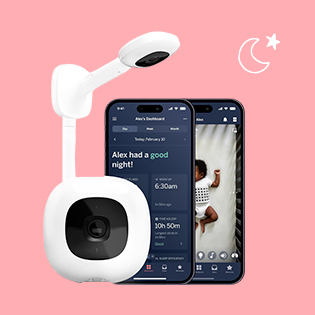For What to Expect’s "What I Wish I'd Known" series, moms and dads share the wisdom they've gained since first becoming parents.
One morning when I was 27 weeks pregnant, I woke up to a MyChart notification: My glucose screening results were finally in. Bleary-eyed, I clicked into the portal expecting some good news; I'd been eating fairly well and exercising regularly, and my pregnancy had no complications so far. But instead of seeing a green checkmark, I was greeted with a bright red result. The panic set in immediately: What had I done wrong?
In the moment, I immediately blamed myself; shame and worry flooded in. Looking back, I realize now that "failing" the glucose screening is actually pretty common — and if it happens to you, it's not your fault at all. Knowing that ahead of time would have saved me so much guilt and stress. As a first-time mom, here's what else I wish I'd known beforehand about this routine pregnancy test.
- About 20% of pregnant moms get an abnormal one-hour glucose test result.
- If you fail the test, it's not your fault. Pregnancy hormones can cause gestational diabetes, and it's not something you did.
- The three-hour test is tough, but you can do it. Ask to lie down if you're feeling nauseous or uneasy.
Failing the one-hour glucose test is really common
The glucose screening (also called the one-hour glucose test) is an important part of prenatal care because it looks for possible signs of gestational diabetes (GD), one of the most common pregnancy complications. Basically, you go into the doctor's office, drink a really sugary beverage and then get your blood drawn an hour later. Before my test, my OB/GYN had advised against eating anything super sweet or carb-heavy beforehand, but assured me I didn't have to fast and it'd be no big deal.
She was totally right; taking the test itself was really easy — the drink tasted like orange Gatorade, and I was in and out of the office in a little over an hour. What I didn't realize, however, is that a lot of women — "fail" the test.[1]
Read Next
Approximately 20% of pregnant moms receive an abnormal one-hour glucose test result when screened for gestational diabetes at the typical time in pregnancy (24 to 28 weeks), says Shanti Serdy, M.D., an endocrinologist at Beth Israel Lahey Health's Joslin Diabetes Center.
What I wish all moms knew about the glucose test
Panickedly researching GD in the days that followed taught me more about the condition — and knowing some of those things ahead of time would have spared me a lot of that initial stress and worry. Here's what I wish all moms knew upfront:
If you "fail" the test, it's not your fault
Seeing the results, I immediately felt a sense of guilt. It set off an icky spiral of self-blame, mostly around my pregnancy diet: I shouldn't have had those brownies at the Super Bowl party. Why did I eat that bagel after my run? I can't believe I gave into that 2 p.m. candy craving … I felt like I had failed my first test as a mom — before my baby had even arrived. It was a terrible thought, and it was really, really unnecessary.
The reality is that while eating a healthy diet low in refined carbohydrates is an important way to manage gestational diabetes, eating a lot of carbs is not what causes it. The reason some moms get gestational diabetes is that pregnancy hormones can make the body less sensitive to insulin, which is the hormone that you need to keep blood sugars in the normal range, says Sumin Park, M.D., an OB/GYN with Jefferson Health in Philadelphia.
The specific culprit? A hormone called human placental lactogen, which is made by the placenta. If you're expecting twins and they each have their own placenta, you're at higher risk for GD.
In other words, it's not your fault if you "fail" the test or develop GD, so don't beat yourself up. What really matters is getting diagnosed correctly so that your health care team can keep you and your baby healthy.
"As an OB/GYN, this is what I do for a living … but I failed my one-hour glucose testing by a lot," Dr. Park says. "It's not your fault if you have gestational diabetes in pregnancy. Focus on getting the appropriate care."
Dr. Serdy agrees: "Some might say it's just semantics, but I don't like the word 'fail' … We are all doing our best under the circumstances that we're in."
The odds are still pretty high that you don't have gestational diabetes
If you fail the one-hour test, it doesn't mean you necessarily have gestational diabetes. You simply have to come back for a second procedure called the glucose tolerance test, aka the three-hour test. This round involves an even sweeter drink and a few more blood draws spaced out over three hours.
Only a third to a quarter of people who have an abnormal one-hour result also have an abnormal three-hour result, which is diagnostic of GD, Dr. Serdy says.
So why are there two tests?
"The one-hour test is a screening test whereas the three-hour test is diagnostic," explains Megan Evans, M.D., M.P.H., an OB/GYN at Tufts Medical Center in Boston. Basically, the one-hour test is designed to catch all possible cases of GD without making everyone do the more-involved diagnostic test.
Its convenience means it helps more moms in the long run: "The patient does not have to be fasting, it takes only one hour and it can be done during the course of a typical office visit," Dr. Serdy explains. "If a screening test is too inconvenient, many people might not come in for the testing, and the opportunity to screen and treat those who would benefit could be missed."
Still, most people who have an abnormal one-hour result actually end up having a normal three-hour result; gestational diabetes affects about 8% of moms in the U.S.[2]
If you're worried or upset, lean on other moms
While the main people in my life (my husband, my sister …) were supportive as I panicked about my results, I didn't really feel my guilt go away until I talked to other moms about it. It turned out tons of moms I know had failed the one-hour test with one pregnancy or another: some of my coworkers, most of my pregnancy support group, tons of people in my What to Expect birth month club ...
Hearing how many people this had happened to — and how similar their reactions were — really made a difference for me. I wasn't the only person who felt a sense of dread at the idea of cutting back on bread when you're already avoiding so many other foods! (R.I.P. sushi and deli meat.)
If you're feeling upset or disappointed about your test results, I'd recommend checking in with other pregnant moms, whether that's in-person, in a group chat or on the What to Expect Community. It honestly makes a difference to commiserate with someone currently going through it or who's just gone through it.
The three-hour test is daunting, but you can do it
While the possibility of having GD felt scary by itself, I also felt a whole bunch of emotions (anger, frustration, nervousness …) about taking the three-hour test. I'd fast? And then do four blood draws? All while hangry?!?
I'm not going to lie: It's not exactly a fun way to spend a morning. But I did get through it and you can too. These three things made a huge difference for me:
- Don't feel like you need to be productive. I brought my work laptop to the appointment thinking I'd crank out some emails and keep myself distracted between the blood draws. It was a nice thought, but totally impractical. My stomach was rumbling, my head pulsed (no coffee that morning – so a fun caffeine headache for me!) and the busy, fluorescent waiting room was feeling more and more uncomfortable. I pretty quickly realized that now was not the time to get through my to-do list.
- Ask if you can lie down. While I didn't have any nausea with the one-hour test, it kicked in majorly this time around. The glucose drink is twice as sweet, and you're downing it on an empty stomach. When I told the phlebotomist how queasy I felt at hour two, she sent me down the hall. There, a nurse set me up in one of the exam rooms with a pillow for my head and the lights dimmed. Resting there with my eyes closed made me feel so much better. I even fell asleep for a bit!
- Plan a fun lunch for afterward. With about 30 minutes to go, I placed an order for delivery so I'd have a hot meal ready for me as soon as I finished. It was just what I needed to get through the final stretch.
A day after doing my three-hour test, I got another MyChart alert: This time I'd passed. I felt so relieved, and even if I hadn't gotten that result, I would have had treatment options that would keep me and my baby safe and healthy. But now I had extra peace of mind to indulge in the occasional pregnancy craving, and that was news worth celebrating.





























































































